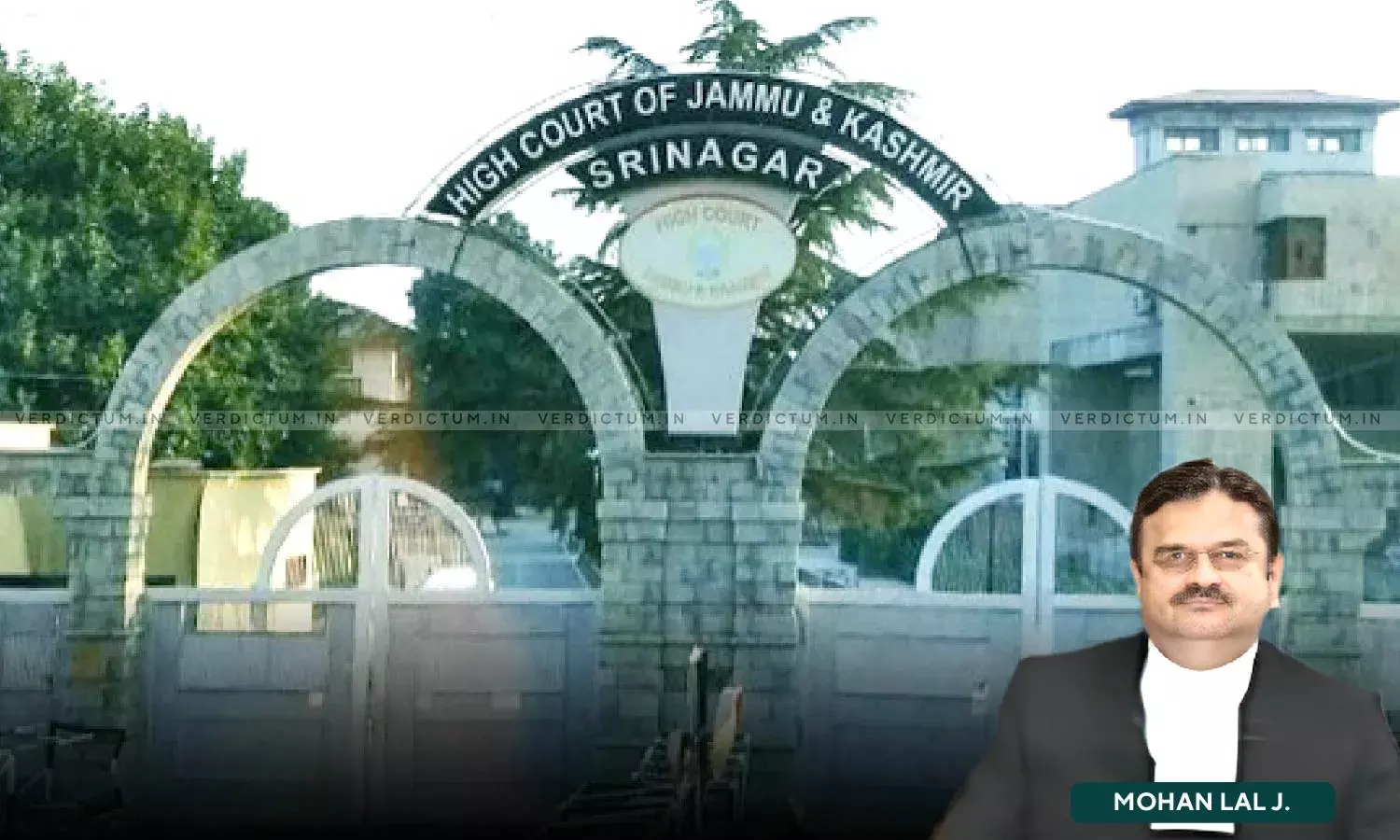Section 306(4) CrPC Cannot Defeat Mandate Of Article 21 Of Constitution: Observes J&K&L HC While Granting Bail

The Jammu & Kashmir High Court has held that there cannot be any quarrel with the legal position that in terms of section 306(4)(b) CrPC, bail to the approver who was in custody cannot be granted, however, in an appropriate case the approver can be released on bail in the exercise of inherent powers under Section 482 CrPC.
The Bench of Justice Mohan Lal observed that the dominant object of keeping an approver to be detained in custody till the termination of trial is not intended to punish the approver for having come forward to give evidence in support of prosecution, but to protect him from possible indignation, rage and resentment of his associates in a crime to whom he was chosen to expose, and such provision is based on public interest.
"Sub-Section 4 of Section 306 CrPC cannot be interpreted in a manner which would defeat the mandate contained in Article 21 of the Constitution of India dealing with life and personal liberty of an individual being of paramount importance in human existence", added the Bench.
Advocate Gagan Kohli appeared for the Petitioner and DSGI Vishal Sharma appeared for the Respondent.
Going by the background of the case, the Petitioner/applicant was facing trial before the Sessions Court in Nagrota Terrorists attack case, wherein he pleaded that he was neither criminal nor a terrorist, but an innocent businessman who stands implicated in the case by the other accused persons.
It was pleaded that one accused who was an employee of Petitioner had misrepresented him in order to secure the vehicle of Petitioner of which Petitioner had neither any knowledge nor any intention to indulge in anti-national activities. It was claimed that Petitioner had no knowledge of conspiracy on the part of the accused to commit attack on army establishment. Accordingly, the Petitioner prayed for grant of bail, as he was in jail in the last four years and ten months.
This was opposed by the Respondent on the grounds, that the petition filed by the Petitioner under Section 482 CrPC seeking quashing of Section 306(4)(b) CrPC as unconstitutional, was misconceived under law and deserves to be dismissed with a heavy cost.
After considering the submissions, the High Court referred to the provision of Section 306 of CrPC and observed that person who volunteers to make full and true disclosure of the whole of the circumstances within his knowledge relating to the offence and other persons connected therewith, when satisfies the terms and conditions of the pardon tendered to him by making a statement during the trial of the case, which pardon entitles him to be set at liberty, then what is the purpose of keeping such a person in detention thereafter.
What purpose is to be achieved by keeping an approver in custody during the trial after he satisfactorily complied with the terms and conditions of tender of pardon, he gets the right to be released and cannot be allowed to remain in jail custody indefinitely, added the Court.
The Bench therefore highlighted that the dominant object is, that once an accused is granted pardon under the relevant provisions of the Code of Criminal Procedure, he ceases to be an accused and appears witness for the prosecution.
Accordingly, elucidating that the High Court in the exercise of its inherent powers under Section 482 CrPC in an appropriate case can release an approver on bail, the Bench concluded that the Petitioner is admitted to bail on his furnishing surety bond in the sum of Rs. Fifty thousand to the satisfaction of the Registrar Judicial of the Court and directed him to furnish a personal bond of the like amount before Superintendent District Jail where he is presently lying in judicial custody.
Cause Title: Tariq Ahmed Dar v. National Investigation Agency

